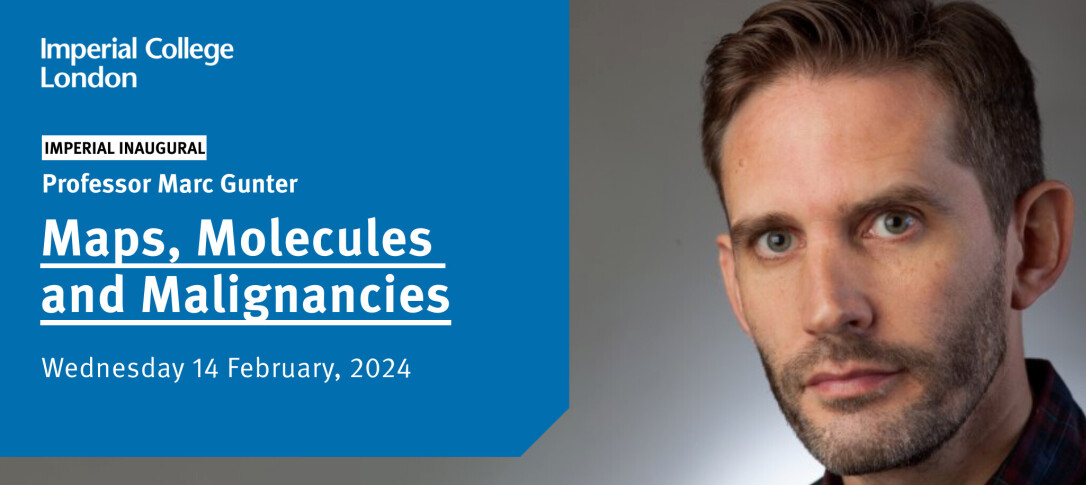
Join Professor Marc Gunter, online or in person, for his Imperial Inaugural.
We have limited in-person spaces available so please ensure you register in advance via Eventbrite.
Abstract
Cancer is a disease that touches everyone – in the U.K, 1 in 2 people will develop cancer at some point in their lives. However, it has been estimated that up to 80% of the cancer burden in high income countries could, in theory, be prevented if only we better understood its causes and could translate that knowledge into effective prevention strategies.
Professor Gunter has dedicated his career to identifying new causes of cancer and understanding their molecular basis. In particular, he has focused his research on how obesity and metabolic dysregulation can cause certain cancers and has applied new molecular technologies to large-scale population-based cohorts and intervention studies to gain novel insights into cancer development.
In addition to describing his research journey and academic accomplishments, Marc’s inaugural lecture will reflect on his early curiosities on geography and genetics that led him to pursue a career in cancer epidemiology and how his training in biochemistry as well as epidemiology has allowed him to forge new inter-disciplinary research.
Biography
Dr Gunter is Professor and Chair in Cancer Epidemiology and Prevention in the Department of Epidemiology and Biostatistics at the School of Public Health, Imperial College London and co-directs the Cancer Epidemiology and Prevention Research Unit based at Imperial College and the Institute of Cancer Research. He previously headed the Nutrition and Metabolism Branch at the International Agency for Research on Cancer (IARC).
He is a molecular epidemiologist and his main research focus is the role of nutrition, diabetes, and obesity in cancer development and prognosis, with an emphasis on studying the mechanisms linking metabolic dysfunction and endocrine pathways with cancer. Marc serves as joint coordinator of the European Prospective Investigation into Cancer (EPIC) and currently leads a number of large-scale multi-disciplinary projects focused on cancer etiology and prevention that employ molecular approaches within prospective cohorts and intervention studies.


